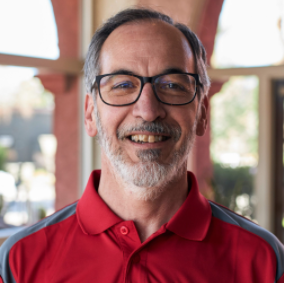
Is there a ministry hill worth dying on? A ministry hill worth taking even if it costs everything? Finishing well.
By Marty Duren
Much is written for pastors about hills not to die on: don’t die over worship styles, don’t die over the student pastor’s hairstyle, don’t die over the color of the carpet.
Basically, this means don’t risk losing your church or ministry over things that are ultimately matters of preference, or even insignificance.
Given the number of hills not worth dying on, is there a hill worth dying on? A ministry hill worth taking even if it costs everything?
To be sure most pastors would name the essentials of the faith as one such hill. If the faith for the saints is not delivered to the saints, the point is missed.
Others would say keeping their marriage intact is a hill on which to die: “If anyone does not know how to manage his household, how will he take care of God’s church?” (1 Timothy 3:5).
But consider this hill to die on: finishing your ministry well. Knowing that, when your earthly tent is laid in the ground, you didn’t end the race in disgrace.
Anger didn’t beset you. Adultery didn’t destroy you. Greed didn’t distract you. Keeping your eyes on the prize, you finished the race you were called to run.
Recently, pastor Tony Merida tweeted:
Merida’s “hill to take” is finishing the ministry well, continuing to press for the mark of the high calling of God in Jesus Christ.
Sadly, recent months have brought near-daily revelations of pastors and denominational leaders who lost their ministries over current or long-secret sins. Pastors who think, “That could not happen to me,” are surely a deluded bunch.
Thankfully, it hasn’t happened to the majority of pastors. Most pastors do indeed finish the race well. They die on the right mountain. The news of brokenness is still frequent enough, however, for us to be mindful.
Todd Littleton, long-time pastor at Snow Hill Baptist Church in Tuttle, Oklahoma, advises two keys to successfully summitting Finish Well Hill.
“It’s important to prioritize investment over achievement,” he said. “Few will remember what you accomplished. Many will emulate your interest in relationships.”
Littleton compared the task of ministry to farming. “It’s critical that we not forget the plow. We may be slower as older pastors but that can actually aid us in being more deliberate and less impulsive. Every new idea doesn’t require immediate implementation; some reflection is warranted,” he said.
“The field has always been the Lord’s. The harvest has always been the Lord’s. You have always been the Lord’s. Keep plowing.”
Georgia pastor Todd Wright, who is soon to celebrate 25 years at Midway Church in Carollton, encourages pastors not to let wounds force them from the race.
“Being involved in ministry always involves getting wounded. The pain that follows makes it tempting to drop out of the race. God did not call us simply to start the race, but to finish it,” he said.
“If we are to finish, we must tend to our wounds and give God time to heal them. Take the time to get an antibiotic and a bandage rather than losing your leg to gangrene.”
Pastoral ministry may include a few picnics, but it is no picnic. There are many pitfalls that can trip even the most earnest and well-conditioned beginning runner. Yet, finishing well is no mere flight of fancy; it is possible.
Let God mend your wounds, invest in the people around you, and trust that He remains in control of your ministry, so the hill you finally die on is one worth the sacrifice.

Marty Duren
Marty is the communications director for the Great Commission Collection, podcast host, and writer.












